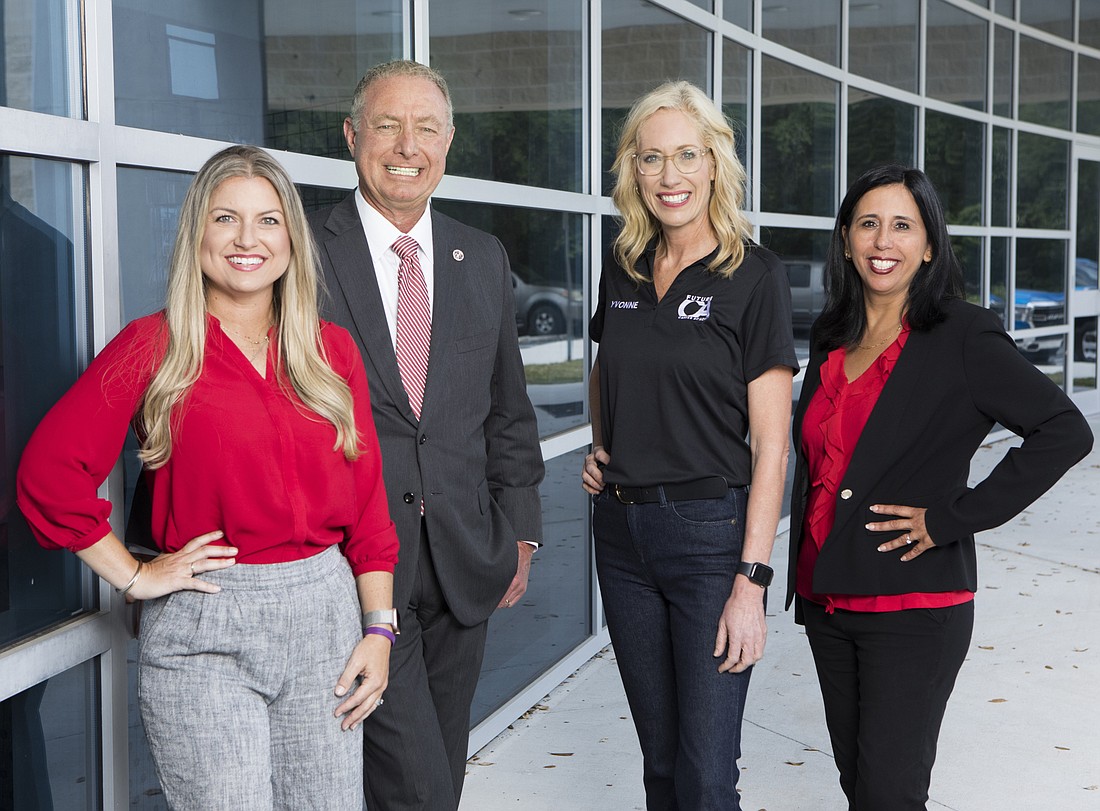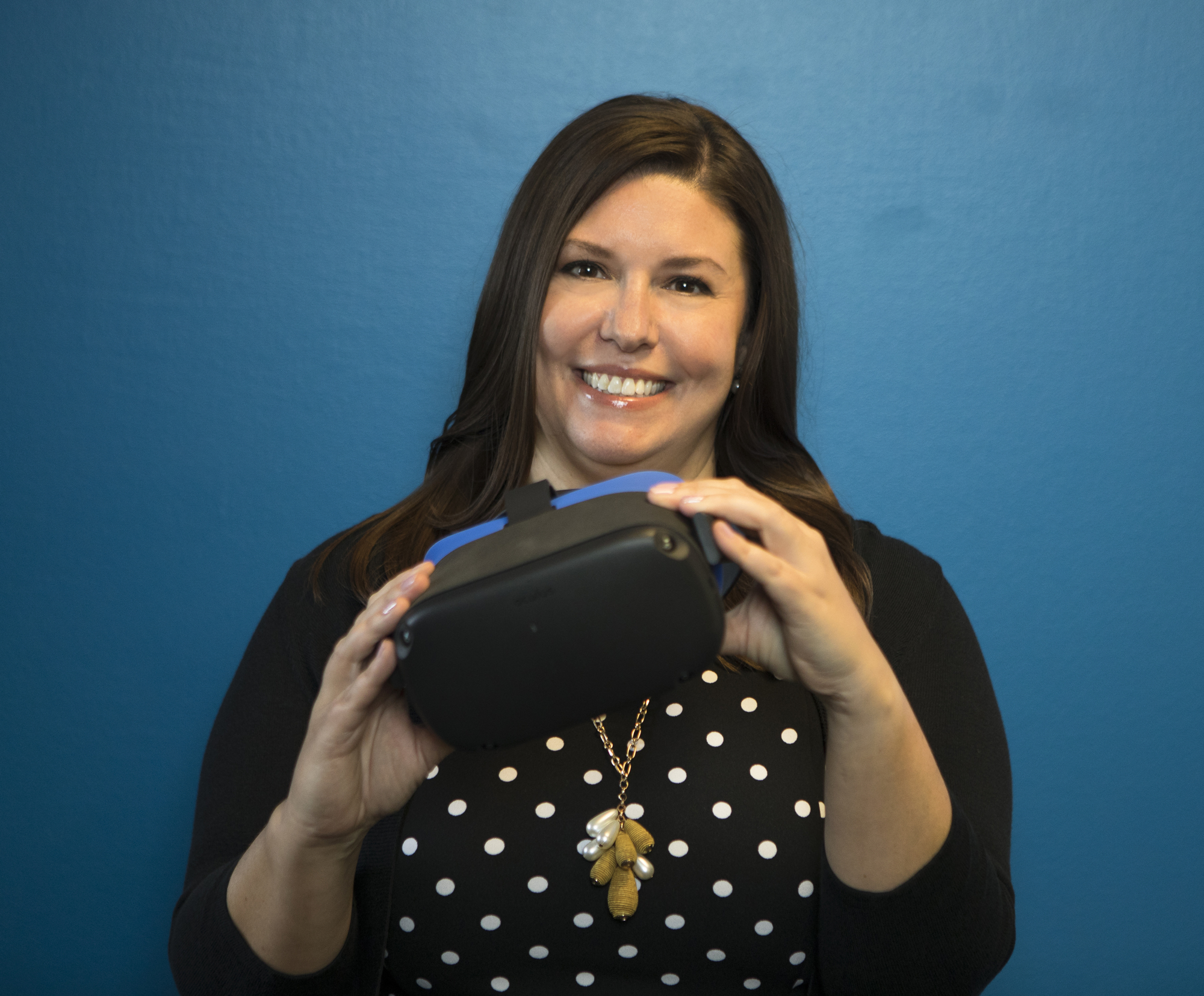- December 22, 2024
-
-
Loading

Loading

The so-called “Great Resignation” that’s occurred during the pandemic has produced — to no one’s surprise — many polarized opinions about why so many people have quit their jobs, leading to a labor shortage.
Whether it’s employers grumbling about lazy workers and their over-reliance on government handouts, or employees saying they’re fed up with sub-par pay, benefits and working conditions, everyone seems to have a view to share and a finger to point.
Some key leaders and organizations in the Tampa Bay region, however, are eager to leave the Great Resignation debate to economists and historians. Now is the time for action, they say, not argument, and they’re backing up their stance with innovative, proactive initiatives that aim to bolster the region’s workforce.
“I tell employers to get the [hiring] process started early, because these kids, as soon as they walk out of high school, the free-fall starts,” says Yvonne Fry, a marketing and public relations professional. In 2015, Fry helped launch Future Career Academy (FCA), a program that helps non-college-bound high school students in Plant City, East Tampa and southern Hillsborough County get a head-start on the skills they’ll need to be successful in the workplace. “The sooner we can get them captured into a job, a purpose, structure and earnings, and all of what's possible in their lives, that’s so important.”

Tackling the problem from the other end of the spectrum is Ultimate Medical Academy, a Clearwater nonprofit that specializes in training people to become retail pharmacy technicians, medical billing coders, medical administrative assistants and call-center representatives who work for benefit provider organizations and large insurers such as UnitedHealthcare and Blue Cross/Blue Shield. UMA has created a game-based, virtual-reality experience that doubles as a training program for recruiters and hiring managers, who often, many contend, bring unconscious hiring biases to their assessments of job candidates.
“We make tons of assumptions about people and their stability, their reliability, their track record,” says Brandi Yates, UMA’s senior director of workforce solutions, citing biases such as age, experience, employment-history gaps, personality traits (introverts vs. extroverts, for example) and job hopping. "Everybody has a different thing that they look for in a resume. Some people look and see one thing, like, ‘Oh, they went to the University of Tampa. I’m a UT alum, so this one’s going in the “yes” pile.’”
But can a video game change human nature? And can a program such as FCA in Plant City reach enough soon-to-be high school graduates to make a dent in the labor shortage? Both are tall orders, for sure, but for UMA and FCA, the pandemic-driven shakeup of the workforce represents the perfect opportunity to take a different approach to recruitment and hiring.
UMA’s VR training for HR executives utilizes the Oculus headset, immersing users in a world where they have to choose and play as one of six job candidates, each with different traits and skills. The goal is to eliminate hiring biases by shooting at and hitting targets.
Candidate A, for example, might have some impressive tools in their arsenal, but because she is an extrovert and draws energy from social interactions, she needs to be around other people to succeed. Candidate B, on the other hand, is an introvert and doesn’t need a team around him to be effective at destroying targets.
“In the pre-pandemic world, what we would hear a lot is, ‘Oh, this candidate lacked passion — they weren’t incredibly energetic or bubbly during the video call,’” Yates says. “But being on camera or being a front-of-room person isn’t a true measure of your success. We need to make sure we aren’t equating things like passion with tone of voice. Introverts and extroverts alike can do things well, so we need to look at introverts in a different way and not pigeonhole extroverts.”
"It’s our responsibility, on the workforce side, to help develop (students) and mentor and coach them." — Angel Brown, BayCare’s director of talent acquisition and employee health
UMA’s VR training program, considered a value-added service for clients, isn’t available to the public, though two of its partner companies are using it, free of charge. Also, Yates and her team held a demo day April 22 in downtown Tampa. She said hiring biases were on full display right from the get-go, as the pilot group of participants all chose to play as the same job candidate, even though there six avatars to choose from.
“What makes this different,” Yates says, “is that you have the bias placed upon you, and you have to react to it, which is a lot different than learning from a PowerPoint.”
She says the users were initially glad they were “all on the same page” but as they became immersed in the game, they realized they might have a group-hink problem on their hands because certain targets became quite challenging to hit. A key takeaway, Yates adds, was the realization that balance is key to team dynamics.
“We don’t want to be missing out out on other candidates by being so singularly focused on one type of individual,” she says. “With COVID and all that's gone on in the past couple of years, I think this has been a good ‘a-ha’ moment for employers to put themselves in the shoes of the candidates they usually hire, or that they usually have preferences for or against.”
At present, UMA’s VR training program is geared toward employers in health care. But it could easily be adapted for use in other industries. “The job description [in the game] has a little bit of health and customer service in it,” Yates says, “but the gameplay itself is universally applicable to recruitment and hiring.”
FCA, on the other hand, takes a more traditional approach, albeit with a few tweaks, to helping employers recruit and retain the best employees. Instead of merely staging a job fair where students can interact with potential employers, the program delivers to students a curriculum based on essential workforce development skills, such as resume writing, interview skills, dressing for success and more.
All high school seniors in the program — funded by a mix of private donations, corporate sponsorships and state funds — who aren’t on a college-bound track receive FCA classroom instruction throughout the year; they also participate in panel discussions and field trips to local businesses. Their time in FCA culminates with a Future Fair, similar to a traditional job fair, but with “navigators” present to make sure students maximize their exposure to potential employers.
“Kids will stand around and talk to their friends because they’re a little shy,” Fry says. “The navigators go to them and say, “Hey, listen, you’ve got one shot here — you can talk to your friends anytime. What are you looking for? What are you interested in? Let’s go start those conversations.’”
FCA’s latest Future Fair took place April 28 at Hillsborough Community College’s Plant City campus. In attendance were a contingent of area leaders, including Plant City Mayor Rick Lott, Plant City Economic Development Corp. President Jake Austin and Hillsborough County School Board member Nadia Combs, an entrepreneur who founded Brighton Learning, a tutoring business, in 2014.
“This program is growing by leaps and bounds,” Combs says. “There’s no question that this is what the future needs. You’re finding over and over that kids are graduating, but maybe they don't have those basic skills that they need to make sure that they're successful in life — knowing how to talk to somebody, shake somebody’s hand, create a resume, be confident. And we also have to acknowledge that not every child is going to go to college.”
Dozens of local businesses, including big names such as Publix and BayCare, have supported — in both monetary donations and appearances at Future Fairs — FCA. Angel Brown, BayCare’s director of talent acquisition and employee health, says employers can do more to improve and expand the local labor pool.
“I think it’s important for the school system to hear from employers and find out what we’re looking for in terms of skills and abilities,” she says, “and how we can help students transition to the workforce — what the expectations are. It’s our responsibility, on the workforce side, to help develop [students] and mentor and coach them.”
Hundreds of students from four area high schools attended the April 28 Future Fair, and they listened raptly to the event’s keynote address, delivered by Lott. He recounted how, as a young man, he disappointed his parents by dropping out of college with no plan for how to make a living. They kicked him out of the house and he wound up homeless for two years, with only a van for shelter.
“They said, ‘We’ll never give you another dime and you’ll never sleep another night in this house,’” Lott recalls. “‘You’ve got to go out and make your own life.’”
Lott landed a job at a business products company, making $3.50 an hour, which he supplemented by picking up and delivering laundry and laying carpet. Fed up with such a hardscrabble existence, he convinced his boss to let him try his hand at sales. He had a knack for that: within five months, he had sold nearly $100,000 in copy machines.
“That was a company record,” Lott says. “But it wasn’t that I was a better salesman; it wasn’t that I was smarter or had super skills and knowledge. I outworked everybody there. So, don’t just do what they’re asking you to do. Do more, even if it’s not your job. Don’t just fit in — stand out. Sooner or later, someone will notice.”
At the conclusion of his speech, Lott held a brief Q&A session. Dozens of hands shot up around the room, but they didn’t ask questions. Clearly inspired by the mayor’s words, they hopped up on stage to have photos taken with him.